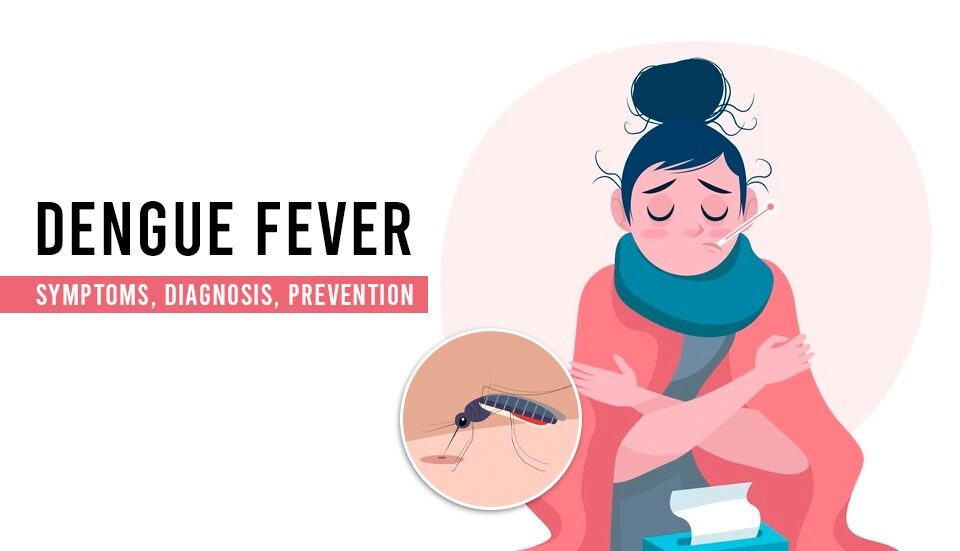With dengue cases skyrocketing in the national capital, hospitals are swamped with patients. There are many cases from the nearby states of Haryana, Punjab, and Western Uttar Pradesh. Over 700 cases have been reported in Delhi alone this year, of which 382 cases were recorded in October alone (till October 16). The need of the hour is to educate people about dengue fever and other details that they need to know.
Let’s find out all about dengue fever, its symptoms, and prevention:
Dengue fever is a mosquito-borne infection caused by four different viruses and is spread by Aedes mosquitoes. Dengue cases usually start after monsoon and last till the onset of winter.
Did You Know?
About half of the world’s population is at risk of being infected by dengue, with an estimated 100-400 million infections each year, the World Health Organisation states in a report.
Symptoms of Dengue Fever
The symptoms usually begin about 4-10 days after contracting the initial infection.
Some of the common symptoms usually last for 2 to 7 days which include:
- High fever up to 106°F
- Severe headache
- Swollen glands
- Joint and muscle pain
- Skin rashes that appear within 2 to 5 days
- Lower back pain
- Red eyes
- Pain behind the eyes
Severe Dengue Symptoms
- Tenderness and pain in the belly
- Mild to severe vomiting 2 to 5 days after the initial fever
- Bleeding nose or gums
- Blood in stool and vomit
- Severe weakness and fatigue
- Restlessness and irritability
Diagnosis
The signs and symptoms of dengue fever are similar to diseases like typhoid fever and malaria. This confusion sometimes delays an accurate diagnosis. Dengue fever usually results in a drop in the count of platelets and White Blood Cells (WBCs). Dengue can be diagnosed with a routine blood count test. However, this is not a sure shot test. Dengue NS1 Antigen, Immunoglobulin M, and Dengue RNA PCR test are common tests to diagnose the disease. Furthermore, the doctor will check other factors such as a person’s medical and travel history to give a correct diagnosis.
Dengue Prevention
The best way to stay protected against dengue is by avoiding mosquito bites. There are no vaccines that can protect an individual against dengue fever. Avoid travel to risk zones to avoid being bitten by mosquitoes.
Here are a few tips to protect yourself from dengue:
Clothing
Wear fully covered clothes (long pants and long-sleeved shirts, socks) to avoid being bitten by mosquitoes. Avoid wearing body-hugging clothes as these enable mosquitoes to bite easily.
Mosquito Repellents
Using a mosquito repellent can help in preventing mosquito bites. Experts recommend mosquito repellents containing DEET (diethyltoluamide). The repellent must have a concentration of 30-50% (DEET), which is considered the most effective.
Mosquito Nets/Traps
Make sure you use mosquito nets in your bedroom. The most effective ones are nets treated with insecticides which will prevent mosquitoes from biting through the net.
Doors/Window Screen
Ensure you put up structural barriers (screens/netting) on windows to keep mosquitoes out.
Reduce Mosquito Habitat
Make sure you get rid of stagnant water near your house. The standing water is the breeding place for mosquitoes to lay eggs. Furthermore, make sure to replace the water in your flower vases, coolers, animal dishes, and planting containers.Dengue FAQs
Question 1: Is dengue contagious?
No, dengue does not spread from person to person as the viruses are carried by mosquitoes. However, when the mosquito bites an infected person and then bites another person, the second person can get infected.
Question 2: Can a person contract dengue for the second time?
Yes, one can get dengue fever again as it is caused by four different virus strains. If one has had dengue once, that does not indicate the person is protected against the other three virus strains.
Question 3: Are antibiotics effective to cure dengue?
No, dengue is caused by a virus, and antibiotics should not be used as they are not effective against it.
Reference:
https://www.who.int/news-room/fact-sheets/detail/dengue-and-severe-dengue
The views and opinions expressed, and assumptions & analysis presented in this content piece are those of the author(s) and do not necessarily reflect the official policy or position of any other agency, organization, employer or company. The information, including but not limited to, text, graphics, images and other material contained on this website are for informational purposes only. The purpose of this website is to promote broad consumer understanding and knowledge of various health topics. It is not intended to be a substitute for professional medical advice, diagnosis or treatment. Always seek the advice of your physician or other qualified health care provider with any questions you may have regarding a medical condition or treatment and before undertaking a new health care regimen, and never disregard professional medical advice or delay in seeking it because of something you have read on this website.




